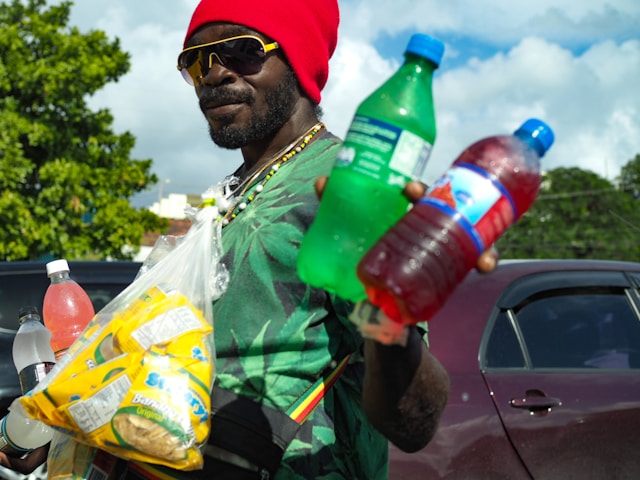Reyes v The Queen was an important case wherein the Privy Council struck down Belize’s mandatory death penalty law and allowed judges to impose life sentences for convicted murderers instead of death penalties.
Human rights language is increasingly being employed in the work of Belize-based NGOs who serve vulnerable populations, with the Centre for Human Rights Education offering an introductory human rights class to tertiary students here.
Treaties
Belize is party to several international treaties, including the UN Convention on Elimination of all Forms of Racial Discrimination and its accompanying Covenant for Economic, Social and Cultural Rights; furthermore it ratified both of these instruments of global governance as well as those against Torture or Other Cruel, Inhuman or Degrading Treatment or Punishment as well as that on Eliminating Discrimination against Women.
Belize Constitution and legislation recognize a wide array of human rights. According to its constitution, anyone alleging violations to their fundamental rights may petition the Supreme Court for redress; upon hearing evidence the court may issue declarations, orders or writs to enforce and protect individuals’ rights.
Belize’s human rights framework is strong; however, its enforcement can still be hindered by numerous barriers such as ignorance of specific strategies to assert and defend rights; costs associated with taking cases to court; fear of challenging an all-powerful state; and feeling that one’s rights are taken for granted.
Belize is taking steps to overcome some of its challenges as a nation. One such organization, Society for the Promotion of Education and Research (SPEAR), educates people about their rights through books and videos written in Creole that aim to increase citizen participation in political change and democracy.
Similar organizations have also contributed to raising awareness of the significance of upholding and protecting human rights. Over the past 25 years, human rights has become more deeply embedded into Belizeans’ consciousness and culture; thanks to work of these groups along with that of the Supreme Court of Belize, their concept is gradually becoming real.
Belize’s government is committed to upholding the principles outlined in its treaties, with special consideration given to protecting minors and the vulnerable. For example, by ratifying CRC Optional Protocol on Children Involved in Armed Conflict Belize has provided itself with another tool for dealing with the problem of child soldiers.
Trade Agreements
Belize, as a developing nation, is heavily impacted by international law, particularly trade agreements and treaties. As a member of the WTO, Belize must abide by certain norms and principles governing international law – respect for sovereignty of other states, territorial integrity within internationally recognized borders, non-interference in internal affairs of other states and peaceful resolution of disputes are among them.
Belize plays an integral role in international law through its commitment to various human rights treaties and conventions, such as adhering to an array of treaties on human rights such as International Convention for the Elimination of All Forms of Racial Discrimination; domesticated in legislation the Convention on Migrant Workers and Members of Their Families – although, unfortunately, most people in Belize do not understand its content and how it protects the rights of migrants.
Belize has also signed and ratified many United Nations conventions and treaties related to women’s rights. This country has adopted and implemented several international treaties and conventions related to women, including: International Convention for the Elimination of all forms of Discrimination against Women; International Covenants on Civil and Political Rights, Economic Social and Cultural Rights and Optional Protocol to Universal Declaration of Human Rights Concerning Elimination of all Forms of Violence Against Women. However, in spite of Belizeans’ increased awareness of human rights issues, many men and women still face major barriers when trying to assert or defend their own rights. These can include ignorance about specific strategies for asserting them; legal costs being too high; fear of challenging a powerful state, among other barriers.
Belize must address both human rights issues and economic well-being for all of its citizens, with an increasing proportion of older individuals as a key challenge. Their specific needs such as financial security and access to medications/healthcare must also be prioritized for. Finally, their contributions must be acknowledged and respected within society.
Disputes
As with any country, Belize faces its share of human rights issues. Men and women experience daily violations to their freedom to freely express their opinions in public or travel from one village to the next freely without restriction or work wherever they choose. The Belizean government does have in place some laws protecting human rights; one such act based on Scandinavian law called The Ombudsman Act (1994) protects citizens against government abuse by investigating citizen complaints against malfunctioning government functionaries.
The International Court of Justice (ICJ) is the principal judicial organ of the United Nations and serves as its primary judicial arm, adjudicating disputes between states since 1946. With an excellent compliance rate for its rulings, this landmark institution remains relevant today.
Belize has signed and ratified several international and regional human rights treaties, such as the Convention on the Rights of Migrant Workers and Their Families (CMMWF), yet most citizens in Belize lack knowledge of what this treaty entails or how to use it to defend their rights.
Belizeans are employed as migrant workers in neighboring countries, particularly Guatemala. Border instability often makes conditions dangerous for these workers and their families in Belize and other parties to this agreement, creating an unstable situation for many of these migrants. To safeguard their rights and those of their families in these cases, CMMWF was formed.
Amnesty International, one of the premier human rights organizations, issued a report in 2004 which noted fatal police shootings, torture by security forces, prison conditions and lack of public participation as major concerns in Belize. Furthermore, they identified its political culture as significant roadblocks to people expressing their rights freely within this nation.
After reading Amnesty’s report, HRCB, a domestic non-governmental organization (NGO), was created to advocate for human rights in Belize. With its secretariat in Belmopan and an office that helped identify routinely abusive police officers. Furthermore, this NGO assisted one teacher who successfully challenged her school’s policy against firing pregnant teachers that contradicted its ratification of CEDAW Convention for Elimination of All Forms of Discrimination against Women (CEDAW).
International Lawyers
International attorneys play an essential part in Belize’s legal system. There are various law firms which represent clients involved with cases involving international law components, such as human rights issues or trade agreements; additionally there are numerous nongovernmental organizations (NGOs) dedicated to protecting human rights in Belize.
As part of its commitment to labor and human rights matters, Canada is party to several international treaties related to labor and other human rights matters, providing extra protections for workers and other citizens beyond domestic laws. Some of the more important human rights treaties include the International Convention for Elimination of All Forms of Racial Discrimination (ICERD), International Covenant on Civil and Political Rights, Economic Social Cultural Rights Convention and Convention for the Protection of Migrant Workers and Their Families Convention.
Belize’s membership of the Organization of American States (OAS) requires it to abide by the American Declaration of the Rights and Duties of Man, an innovative human rights instrument which incorporates duties or responsibilities along with more traditional concepts of rights. It predates by one year the Universal Declaration of Human Rights at UN, making it an invaluable supplement.
As well as creating the legal and legislative framework required by international instruments, a great deal of work has also gone into informing people in the country of their rights and enabling them to take appropriate actions in the event that human rights violations occur.
However, men and women in Belize face several significant barriers to asserting and defending their rights, such as ignorance of specific strategies to enforce them; high costs associated with legal challenges to defend those rights; as well as an overall sense of being intimidated by an all-powerful state.
Belize’s government has made some strides toward improving human rights issues in their country, yet much remains to be done. Although they ratified the Convention on the Rights of the Child in 1991, reports continue of children being neglected or abused; and that enough progress is not being made towards providing quality education to these young individuals.




